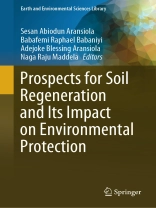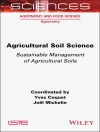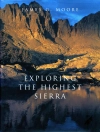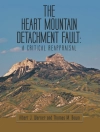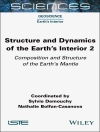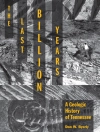Soil is a complex system of inorganic and organic materials, living organisms, water, and air. It is home to more than one trillion species of microorganisms. Soil also plays an important role in the global carbon cycle. Because plants absorb carbon from the atmosphere, convert it to plant tissue, and return it to the soil as plant residue, soils globally act as the world’s largest sink of active carbon. Soil has role to play in food production and safety. Soil contamination undermined by modern agricultural practices that deplete soil carbon stocks. Anthropogenic greenhouse gas emissions have been raising recorded temperatures since the Industrial Revolution. Greenhouse gas emissions from agriculture, forestry, and fisheries have almost doubled in the last 50 years and will increase by 30% by 2050 given the current trend. The primacy of arresting climate change is nowhere more evident than the adoption of 195 countries of the first legally binding global climate deal at the Paris Climate Conference in 2015. With atmospheric carbon dioxide (CO2) reaching 400 parts per million in 2016, soils can be an ally in bringing the CO2 level down to a sustainable level if protected for regeneration. Soil protection and regeneration is a technique that involves the conservative rehabilitation of soil ecosystem and farmland. This technique focuses on top soil regeneration, improving the water cycle, supporting biosequestration, enhancing ecosystem services, increasing biodiversity, strengthening the vitality and health of farm soil, and increasing resilience to climate change and landscape. Environmental protection not only improves soil health, productivity, and resilience to weather extremes, raising farm yields and income while strengthening regional food security in the face of a changing climate, but can also form part of a region’s broader climate strategy. This book is timely as more studies and reviews need to be reported about regenerating global polluted soil and the impacts on the environment, the benefit of both biotic and abiotic structure, thereby creating more awareness of environmental protection and sustainability. Thus, this book presents a vista to research on regeneration of lost resources in the soil and its impacts on the environment.
Jadual kandungan
1. Introduction.- 2. Environmental conservation policies.- 3. Soil and soil issues.- 4.Soil regeneration and influencing factors.- 5. Conclusions.
Mengenai Pengarang
Sesan Abiodun Aransiola, obtained his first degree (B.Tech) and Master Degree (M.Tech) from the Federal University of Technology, Minna, Niger State, Nigeria at the Department of Microbiology in 2009 and Environmental Microbiology in 2014 respectively. He had a Ph.D., Degree in Environmental Microbiology in the same institution. To his credit, there are over 70 publications including book chapters, research and review articles of international repute. He has co-edited scientific books of global interest. Also, he is a Lecturer at the Department of Microbiology, University of Abuja and also has worked as an assistant chief scientific officer at Bioresources Development Centre, National Biotechnology Development Agency, Nigeria. His area of interest is Environmental Microbiology with research area in Phytoremediation, Vermicomposting, Biosorption and Bioremediation of soil contaminated Environment. Abiodun is a member of Nigerian Society for Microbiology and American Societyfor Microbiology among others.
Babafemi Raphael Babaniyi, is a graduate of Industrial Chemistry (B.Sc) at Caritas University Amorji-Nike, Emene, Enugu State, Nigeria in 2008. Later had his Master Degree (M.Tech) in Environmental Chemistry at Federal University of Technology, Akure, Ondo State, Nigeria in 2021. Currently, He is a Ph.D. candidate in the department of Chemistry (Environmental Chemistry) Federal University of Technology, Akure, Ondo State, Nigeria. He had over 25 publications including book chapters and articles of international repute. Additionally, he is an assistant chief scientific officer at Bioresources Development Centre, National Biotechnology Development Agency, Nigeria. His area of interest is Environmental Chemistry with research area in Environmental Chemistry, Green Chemistry, Phytoremediation, Chemical Biology, Environmental Science, Bioremediation of soil contaminated Environment, plant protection and animal health, Environmental impact assessment and Biodegradable plastics.
Adejoke Blessing Aransiola, received her B.Tech (2010-2015) and M.Tech (2018-2023 ) from the School of Environmental Technology, Federal University of Technology, Minna, Niger State, Nigeria at the Department of Surveying and Geoinformatics. She is presently a pupil surveyor under the Surveyors Council of Nigeria with specialty in Remote Sensing for possible detection of Gold in mining sites. Served as an assistant lecturer in the Department of Earth Sciences in the Ladoke Akintola University of Technology in 2016/2017. She has paper in conference and handles software for Geographic Information System such as Arc Gis, Envi, Surfer, PCI Geomatical and Auto CAD.
Naga Raju Maddela received his M.Sc. (1996–1998) and Ph.D. (2012) in Microbiology from Sri Krishnadevaraya University, Anantapuramu, India. During his doctoral program in the area of Environmental Microbiology, he investigated the effects of industrial effluents/insecticides on soil microorganisms and their biological activities and he is working as Faculty in Microbiology since 1998, teaching undergraduate and postgraduate students. He worked on Prometeo Investigator (fellowship received from SENESCYT) at Universidad Estatal Amazónica, Ecuador during 2013-15, received ‘Postdoctoral Fellowship’ (2016–2018) from Sun Yat-sen University, China. He also received external funding from ‘China Postdoctoral Science Foundation’ in 2017, internal funding from ‘Universidad Técnica de Manabí’ in 2020. He participated in national / international conferences, and presented research data in China, Cuba, Ecuador, India and Singapore. Currently, he is working as a Full Professor at the Facultad de Ciencias de la Salud, Universidad Técnica de Manabí, Portoviejo, Ecuador. He has been actively publishing scientific articles, books (authored and edited) and chapters since 2007. As of now, he published 70 articles, 12 books and 40 book chapters.
